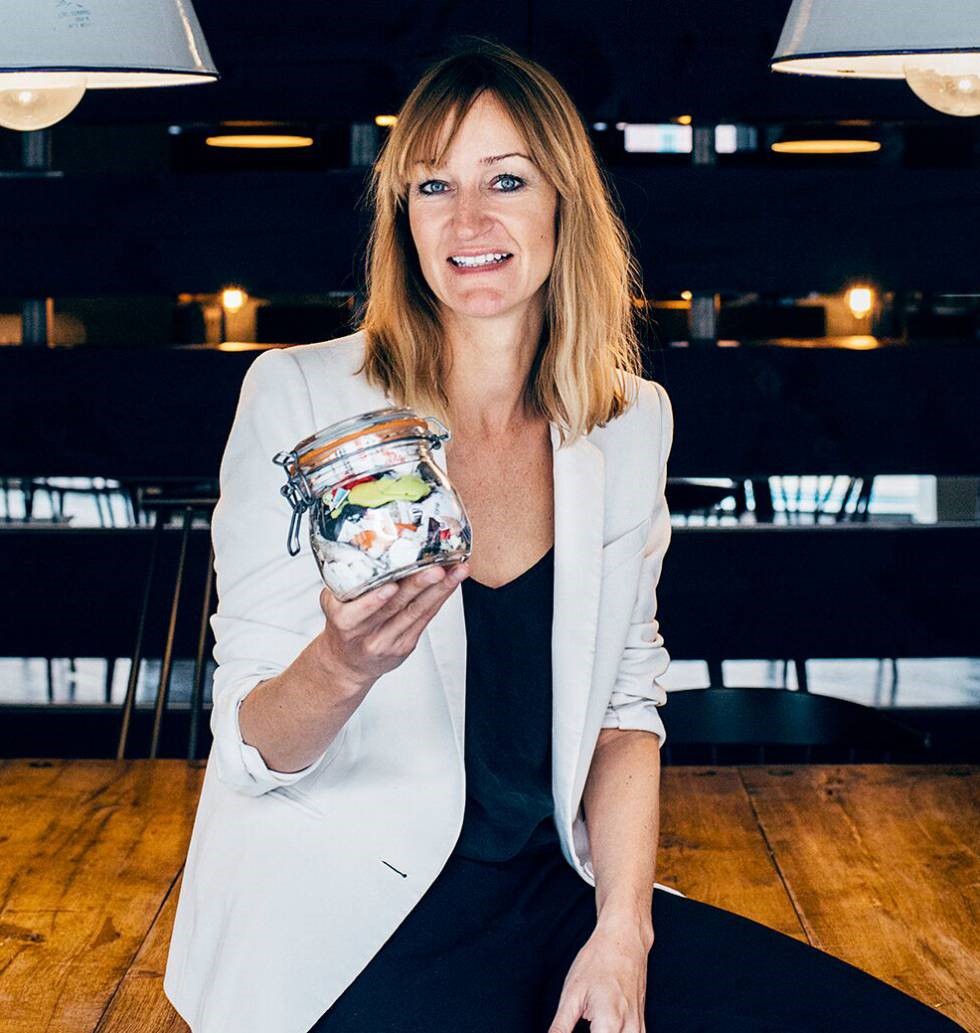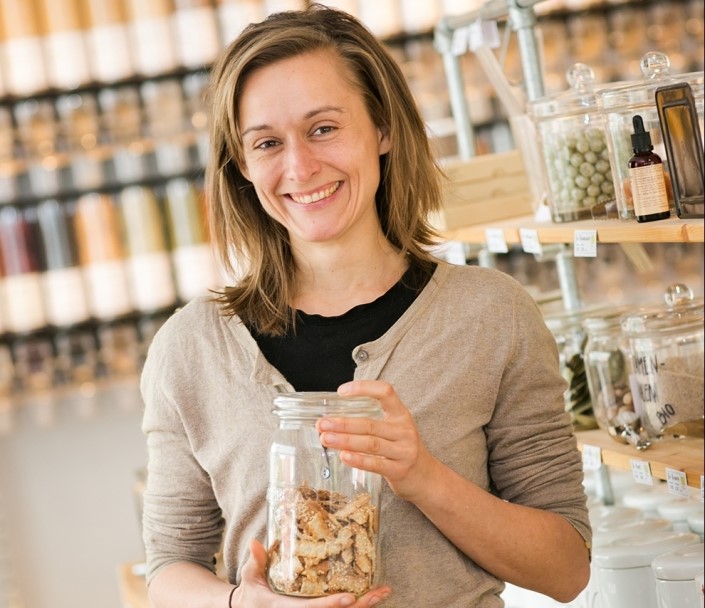Zero Waste: Philosophy and Examples
Are there really people who don’t produce garbage? How do they manage to live in extremely consumerist societies, where often people’s value tends to be ranked according to their possessions?
The more practical and the faster things disappear from our view, the better. Buying, unpacking and throwing away, is an old routine that we repeat over and over again since many of us can remember. Anything that doesn’t work anymore, is worn out or is simply out of fashion has to go. It has become something so immersed in our system that we even act accordingly with food. On average about 53kg of food per person is wasted annually.
It is also important to highlight that on average 617kg of garbage is produced annually per person. Of this 8 million tons go directly into the oceans. However, contrary to popular belief, most of the waste comes from advanced societies. There is a direct relationship between more money, more consumption and therefore more waste.
As a result, in 2007, the zero waste movement was created, a term that also refers to a better and longer use of things. It is a movement of persons who have adapted their lives to stand against this growth focused and consumerist way of life. Instead of throwing away and renovating, they seek to reduce their waste and thereby their resource consumption as much as possible. In other words, the zero waste movement focuses on the utopian ideal of creating a closed circular system in which all the waste is reintegrated into the system.
It is not a perfectionist or very strict lifestyle, but it seeks to promote practices and actions directed towards this utopian idea. This means that even small actions can have a positive impact and of course the more, the better. In this way, awareness can be created among our society about the consequences of our day to day consumption and the impact it can generate.
According this, one might think: Why don´t we simply focus on recycling? It is important to say that it is not a bad initiative, however it’s not enough. It should actually be used as last resort if reducing or reusing is not possible. This is so because recycling typically requires a high energy and virgin resource consumption. Furthermore, the quality of products often tends to drop significantly.

Bea Johnson´s yearly waste production
Even though we might wonder how is it possible that there are people who have adapted each activity of their daily life to this philosophy, there are some impressive cases. American Bea Johnson is known for generating only the equivalent trash amount to one jar during one year. She’s basically the zero waste movement’s founder and has been a great inspiration to many people through her advice on social media and blogs (@zerowastehome on instagram). Olga Witt from Germany has also gone through remarkable effort to invite more people to join the cause and show easy ways to adapt to it (@ zerowastelifestyle.de on instagram).
Among their main tips, they suggest to always start with the simplest things. It is all about looking for alternatives, not giving up our practices, otherwise the changes may seem overwhelming. They also suggest asking older people, such as grandparents, what they used to do in the past, since they come from a generation in which they could not simply afford throwing away their things. It’s also convenient to look at different habits in other cultures, something that is as essential as toilet paper in the western world, is completely replaced with water, soap and a towel in some Asian cultures.
However, if toilet paper is not an easy first step to take, there are many single-use products that can be easily replaced. For example, paper napkins. If we think about the many acres of trees that are cut down, so that after a single use they reach garbage cans, then it’s not really a big deal to change to cotton napkins that can be washed. In the same way it happens with handkerchiefs and makeup remover towels. Disposable cutlery and plastic bottles are also easily replaceable by reusable water bottles, cups and washable cutlery.
Additionally an essential part to all this is shopping. It is important to be aware of all the toxic substances that migrate from packaging to the food and the complications that they can generate at the hormonal level in humans. Therefore, another main recommendation is to buy “unpacked” and bring your own bags, nets and cups. This can be done both in the well-known and popular weekly markets and in bulk stores like Estado Natural.

Olga Witt at her bulk store in Cologne, Germany
On the other hand, it is not necessary to give up all those products that are not in this type of establishment since there are multiple homemade recipes for products normally packaged in plastic. It’s easy to make them in a simple and completely sustainable way. Right here we provide you with some recipes published by Olga Witt.
Detergent:
Ingredients:
- 200 ml of boiling water
- 2 tablespoons of baking soda
Directions:
- Pour the boiling water along with the baking soda into a bowl and churn until it’s dissolved
- Wait for the mixture to cool down and pour it into a detergent bottle
Note: shake before each use
Body lotion/ body cream:
Ingredients:
- 50g of beeswax
- 100-200g good quality oil (can be olive or coconut oil)
Directions:
- Pour the beeswax into a melting pot in a water bath
- Pour in the oil once the wax is completely melted and stir
- Empty into a container
Note: You can also make a body lotion stick using less oil
Deodorant:
Ingredients:
- 1-2 teaspoons of baking soda
- 100 ml of water
Optional: 2 drops of tea tree essential oil or 10 drops of sage essential oil (helps against sweat)
Directions:
- Boil water and let cool
- Once the water is cooler, mix with the baking soda slowly (it is important that the temperature is not too high since otherwise the soda can irritate the skin)
- Incorporate the essential oil drops
- Empty into a container
PLEASE CONSIDER A DONATION TO SUPPORT OUR EFFORTS TO END PLASTIC POLLUTION
